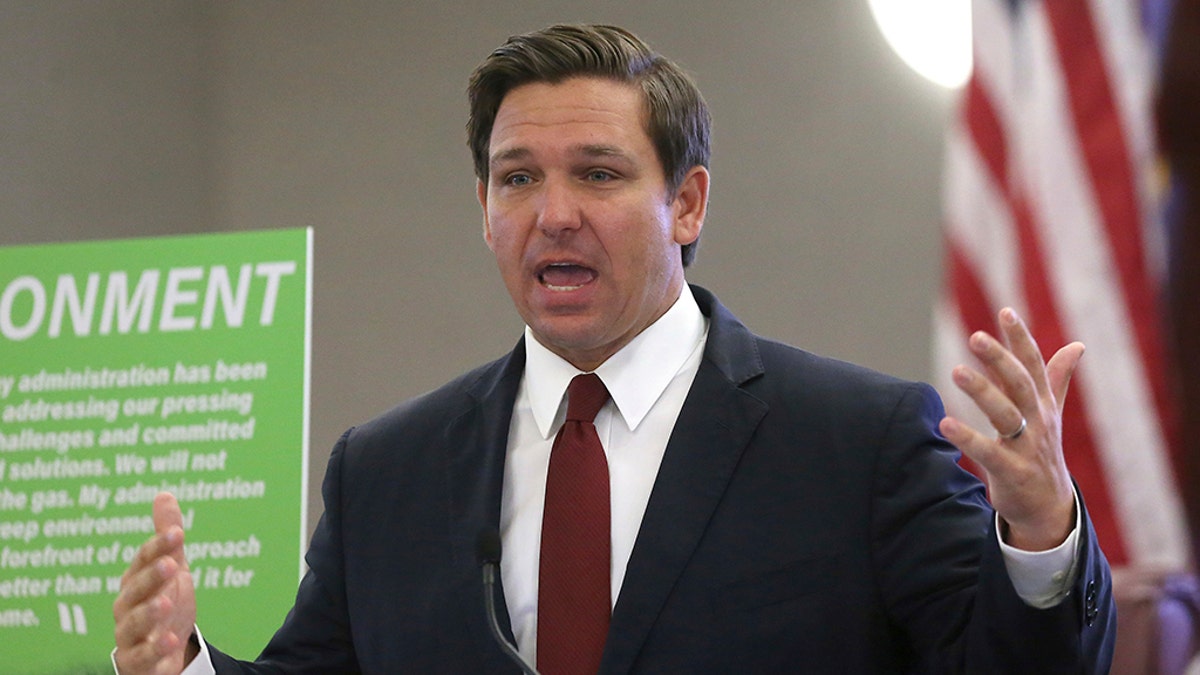Fox News Flash top headlines for May 24
Fox News Flash top headlines are here. Check out what's clicking on Foxnews.com.
Get all the latest news on coronavirus and more delivered daily to your inbox. Sign up here.
A federal judge declared unconstitutional parts of a Florida law that would require people with felony convictions to pay off financial obligations before regaining their right to vote, paving the way for hundreds of thousands of Floridians to register to vote.
The decision, which likely will be appealed and could reach the U.S. Supreme Court, comes less than six months before a presidential election, in a crucial swing state where contests often are decided by paper-thin margins.
In his decision Sunday, U.S. District Judge Robert Hinkle ruled that the procedures put in place by the law amounted to an “unconstitutional pay-to-vote system.”
He said “the State can condition voting on payment of fines and restitution that a person is able to pay but cannot condition voting on payment of amounts a person is unable to pay or on payment of taxes, even those labeled fees or costs.”

FILE - In this Oct. 29, 2019, file photo, Gov. Ron DeSantis speaks at a news conference on in Tallahassee, Fla. A federal judge has ruled that the Florida law requiring felons to pay legal fees as part of their sentences before regaining the vote is unconstitutional for those unable to pay, or unable to find out how much they owe. U.S. District Court Judge Robert Hinkle has acknowledged he is unlikely to have the last word, expecting the administration of Republican Gov. DeSantis to launch an appeal. (AP Photo/Steve Cannon, File)
A 2018 constitutional amendment approved by nearly 65 percent of Florida voters ended the state’s permanent disenfranchisement of felons. The measure restored voting rights to those who completed all terms of their sentences, including parole or probation, but excluded people convicted of murder or felony sexual offenses.
After it took effect, the Republican-led legislature last year passed a bill, signed by Gov. Ron DeSantis, a fellow Republican, that supporters said was needed to clarify the amendment’s language. The bill’s provisions included a requirement that to fulfill all terms of their sentences, felons must pay any fees, fines or restitution they owe.Opponents of the bill said the measure undercut the amendment.
An analysis by Daniel Smith, a University of Florida professor hired as an expert by amendment backers, found that 77 percent of more than 1 million Floridians with felony convictions who were released had outstanding financial obligations. About 146,000 of them owed more than $10,000.
CLICK HERE TO GET THE FOX NEWS APP
Such debts include court-imposed fees, fines for certain crimes and restitution due to victims.The state has no centralized source that people can consult to find out whether they owe fees, fines or restitution. So, they usually have to inquire with clerks of court, whose record-keeping varies by county and who may not have decades-old documents easily retrievable.
A group of 17 plaintiffs with felony convictions represented by organizations, including the American Civil Liberties Union and the Brennan Center for Justice, sued last year to challenge the law.
In October, Judge Hinkle temporarily blocked the law in a narrow ruling, finding that the state can’t deny people the right to vote solely because they can’t pay a financial obligation.
CLICK FOR MORE AT WSJ.com










































